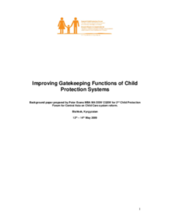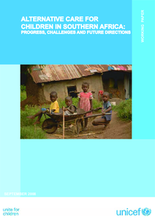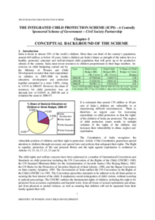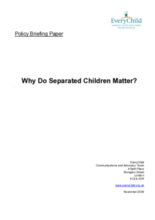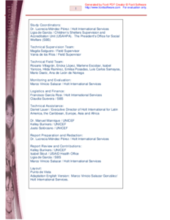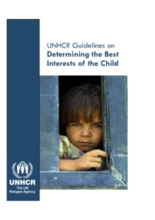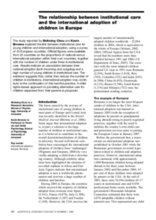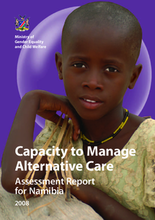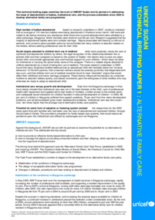Displaying 151 - 160 of 191
This background paper draws attention to the child protection reforms to be made to gatekeeping access to services. The paper draws attention to critical linkages to relevant legal, policy and procedural reforms and the reform of services to support children and families.
This report, prepared for UNICEF East and Southern Africa Regional Office (ESARO) assesses the capacity in Malawi, South Africa, Swaziland and Zambia to manage alternative care systems for children.
In 2006 the Indian Ministry of Women and Child Development proposed the adoption of an Integrated Child Protection Scheme (ICPS), which was adopted and launched by the central government in 2009-2010. Recognizing chronic under funding of child protection services in the country and major gaps in the system, the ICPS was expected to significantly contribute to the realization of Government/State responsibility by creating a system that would effectively and efficiently protect children.
Evaluation of the need for increased understanding and inclusive responses to highly marginalized and separated children.
Examines the importance of clarifying global understanding of the word and the implications of such.
Assesses the causes and realities of children living in institutions in Guatemala with recommendations for systemic reform.
Provides a formal mechanism to determine the best interests of the child as a mechanism within a child protection system
Explores causal relationship between increased international adoption and increase in institutional care of children in Europe.
This report prepared for the Ministry of Gender Equality and Child Welfare (MGECW) with financial support from UNICEF Namibia assesses the country’s capacity to manage alternative care systems for children.
Examines the work of UNICEF Sudan and its partners in addressing the issue of abandonment of babies, institutional care, and the process undertaken since 2003 to develop alternative family care programmes.

